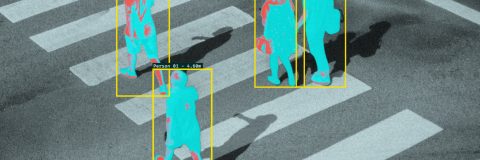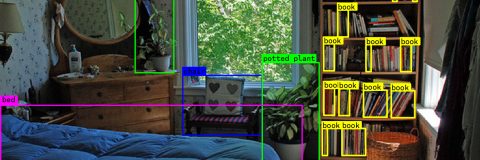The construction of a mining center in an isolated part of northern Quebec demonstrates that the use of open protocols – and free software – can prevent skyrocketing IT costs!
 A few months ago, Canadian Royalties, a Quebec-based enterprise, began construction of a multi-site mining center 150 kilometres away from Salluit, an isolated village located at the northern tip of the province of Quebec. The challenge is that the building site, known as the Nunavik Nickel Project, is difficult o access: it can only be accessed by air (landing on the ice) or by sea (tens of kilometers away), and only season- and weather-permitting!
A few months ago, Canadian Royalties, a Quebec-based enterprise, began construction of a multi-site mining center 150 kilometres away from Salluit, an isolated village located at the northern tip of the province of Quebec. The challenge is that the building site, known as the Nunavik Nickel Project, is difficult o access: it can only be accessed by air (landing on the ice) or by sea (tens of kilometers away), and only season- and weather-permitting!
The building of such a site requires enormous investments and tremendous logistical coordination since all material elements – from cereal boxes to mining equipment – must be imported, sorted and stocked before being retreived for transport elsewhere. Furthermore, the company has to manage and track employees, which is not an easy task since they are constantly moving from the south to the building site, which operates 24/7. What does this mean? It means that the enterprise and it’s information system are deeply integrated or, if one insists on separating them, that the management of information is just as important as a business’ "official" activities.
In Canadian Royalties’ case, we estimate that 60% of the exploitation costs are linked to transportation, housing, food, telecommunication, administration, etc. The exploitation of the mine, as well as the exploration phase, played a less significant role. The costs are huge: we estimate that the cost per worker represents hundreds of thousands of dollars on a yearly basis! Cost-cutting measures were, unsurprisingly, more than welcome.
In this context, Savoir-faire Linux, which has a great deal of expertise in IP telephony (thanks, among other things, to its role in the SFLPhone project, founded and maintained by the company) was asked to implement a IP telephony communication system. The challenge was significant: establish an efficient telephony system able to operate accross all work sites (separated by tens of kilometrers) and linked to the company’s offices in Longueil, Montreal and Val d’Or. It was done by adapting IP telephony to the satellite networks’ characteristics and by using the advanced communication system known as Asterisk (see below).
Inukshuk
In addition to working on the telephony system, Savoir-faire Linux was working on a more complex logistical task: insuring that all resource movements, both human and material, were tracked. This project was called Inukshuk, an inuit word used to refer to a pile of rocks which acts as a location marker. In truth it was a very complicated task, given the number of suppliers, the constant movement of human and material resources, the impossibility of guaranteeing feasible connectivity at all times and finally, the number of information systems involved. When the barcode readers’ software, the databases and the accounting software do not communicate, all hell breaks loose… and costs skyrocket, as one is no longer able to keep track of the work site’s resources! To pull out of this situation, Savoir-faire Linux chose to gather all these languages and systems in a unique central interface.
In concrete terms, and in order to take control of the situation, a barcode was allocated to each resource capable of having one; in terms of human resources, Savoir-faire Linux built an ID card system in pdf format.
While some suppliers are capable of managing their products’ codes, others, need help; in this case we send them an email with the codes. They print the codes out and allocate them to each of their products. In concrete terms, the Inukshuk system allows the client to generate 8.5 X 11 expedition identification tags for printing on a standard laser printer. This document is usually sent to the supplier in pdf format at the same time as the Purchase Order.
Working on the project, Benoit Grégoire, CIO at Savoir-faire Linux, remembers the important challenge of unifying numerous different systems: "Free software was the only plausible solution to this challenge."
From a telephone system to the logistical management of people and material… the Canadian Royalties contract was anything but simple. But it was far from being an "impossible mission" for the Linux Pinguin and Savoir-faire Linux!
Some free software used for the Canadian Royalties’ Inukshuk project:
- Linux: Operating system
- Apache: Web server
- Pylons: Web application development tool
- ReportLab: a PDF generator
- Asterisk: Offering power and flexibility, Asterisk is a telephone exchange often described using the abbreviation PABX (Private Automatic Branch Exchange) Thanks to the integration of computing and telephony, numerous services are available for enterprises (answering machine, return calls, conference calls, voice messages sent by email, etc.)
- MySQL: Purchased by Sun for 1 billion dollars in January 2008, MySQL is amongst the most popular database management systems and runs on numerous operating systems.



 A few months ago, Canadian Royalties, a Quebec-based enterprise, began construction of a multi-site mining center 150 kilometres away from Salluit, an isolated village located at the northern tip of the province of Quebec. The challenge is that the building site, known as the Nunavik Nickel Project, is difficult o access: it can only be accessed by air (landing on the ice) or by sea (tens of kilometers away), and only season- and weather-permitting!
A few months ago, Canadian Royalties, a Quebec-based enterprise, began construction of a multi-site mining center 150 kilometres away from Salluit, an isolated village located at the northern tip of the province of Quebec. The challenge is that the building site, known as the Nunavik Nickel Project, is difficult o access: it can only be accessed by air (landing on the ice) or by sea (tens of kilometers away), and only season- and weather-permitting! 



